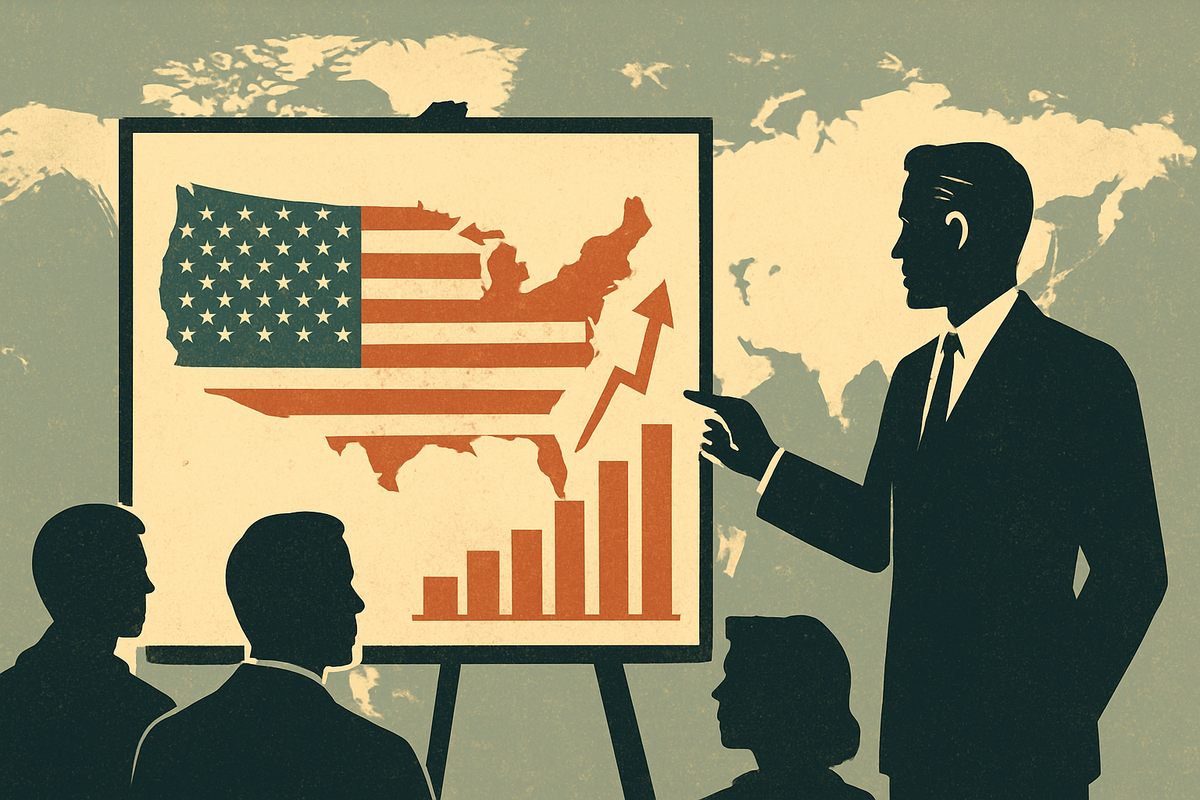America’s Economic Superstar: How the World Caved to Trump’s Tariff Leverage

Read the original: The US Consumer as Global Superstar: Trump’s Tariff Policy Leverage
Back in April, I laid out a simple but powerful idea: the US consumer is the global economy’s most valuable asset, and tariffs are not a threat to trade, but the rightful fee for access to an irreplaceable market. In that piece, I argued that President Trump’s 2025 tariff initiative treated the US consumer like a global superstar and that tariffs were simply the price of admission.
Today, that thesis has been proven correct. The world pushed back. Then it caved.
The World Blinks, the Math Holds
When the tariffs were first announced, critics warned of trade wars, retaliation, and inflation. Instead, foreign nations adjusted because they had no choice.
Just as I projected, Chinese producers, European exporters, and Asian manufacturers chose to absorb the tariffs, not pass them on.
Why? Because the math is brutal and irrefutable. A Chinese exporter would need to reach seven Chinese customers at 280% the cost to match the value of one American. European exporters face a 60% cost premium just to reach three local buyers for the same dollar. The UK was even worse, 30% costlier. No viable alternative exists.
Tariff Revenues Surge, Inflation Doesn’t
While mainstream economists screamed “inflation,” the data now points in a different direction: in April, the tariffs brought in $17.4 billion in new revenue, while May has topped that, with $22 billion already collected this month. If we extrapolate these numbers, we can expect at least $200 billion in annual tariff revenue.
This is because foreign producers are slashing prices in Southeast Asia and even in their own domestic markets to offset the cost of doing business in the United States. As I wrote months ago: Forget fairness, this is economics.
The result? We may now see deflationary pressure, not inflation, from tariffs. And the American consumer, rather than being hurt, continues to dominate global demand.
Furthermore, despite repeated proclamations of the dollar’s imminent collapse, the US dollar has remained remarkably resilient. The Dollar Index (DXY) strengthened notably in the lead-up to President Trump’s election, as markets began pricing in his tariff-driven trade policy. While the dollar has weakened since the start of the year and following 'Liberation Day,' the recent price action has stabilized. In fact, the DXY now trades roughly flat compared to its pre-election surge. If you take a look at the chart, you will see that over the past eight months, the dollar has proven steady, not spiraling, as many critics had predicted.
Trump, the Agent for the Superstar
If the American consumer is LeBron James, Trump is the agent negotiating the max contract. And just like any elite sports agent, he’s not being unfair, he’s simply demanding what the market will bear.
The US offers a once-in-a-generation mix: 30% of global consumption, 4% of the population, $200 trillion in private net worth, $40 trillion in federal assets, a common language, a single regulatory regime, and the lowest-cost infrastructure for distribution at scale. This is the most efficient, concentrated consumer market on Earth.
The rest of the world? They’re not negotiating. They’re paying.
A Strategic Tool for National Renewal
And what do we get in return? Options.
The US can use this tariff windfall, to cut taxes, reduce debt, or invest in strategic priorities like AI, semiconductors, and clean energy. A $2,000 annual tax credit for every middle-class family? That’s on the table. So is reducing the national debt by nearly $2 trillion.
This is what happens when a country starts charging for access to its most valuable asset.
Conclusion: Superstar Economics Is Here to Stay
When I first described the US consumer as a global superstar, it was a metaphor. Today, it’s a policy framework. The US consumer is the single most important player in the global economy, and it’s time we started acting like it.
Tariffs aren’t about retaliation. They’re about recognition. And Trump, like any sharp agent, is finally making the world pay for what it's always taken for granted.
They said we were wrong. Now they’re paying. And the superstar? Still under contract.





